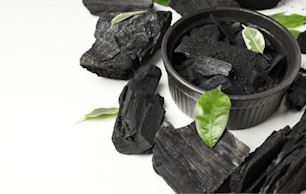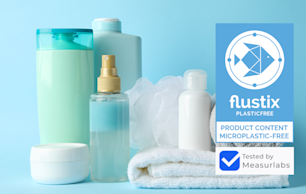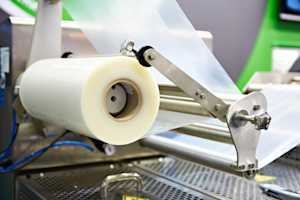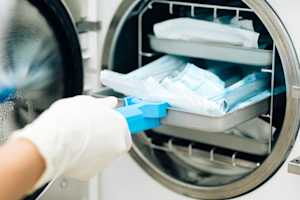Material Testing Insights
Read articles by our experts and guest authors on the practical implications of regulations, scientific advancements, and the ideal uses of different analysis methods.
Top articles

PFAS regulations in the EU: overview of restrictions and compliance testing options
The use of toxic PFAS compounds has been regulated in the EU for over a decade, with restrictions getting stricter each year.

How to compare material testing laboratories – 10 aspects to consider
Read our tips on how to compare material testing laboratories and select the best-suited one for your testing needs.

In vitro biocompatibility tests: alternatives to animal testing in the development of medical devices
In vitro biocompatibility tests can be sufficient to show that low-risk medical devices are safe and compliant with EU regulations.
Infinited Fiber Company relies on Measurlabs to optimize and develop the Infinna™ fiber production process
Measurlabs' reliable specialty analyses have enabled Infinited Fiber's R&D team to shift their focus from analytical challenges to advancing core processes.
Keep reading >

Top laboratories for PFAS analysis: comparison of capabilities
We compared the capabilities of PFAS laboratories to help you determine which lab might work best for your specific analysis needs.
Keep reading >

From biowaste to biochar: optimizing Evac’s waste management solutions through laboratory testing
Measurlabs provides high-quality testing for Evac’s often complex waste and biochar samples across all stages of the treatment process.
Keep reading >

Guide to EN 45545-2 fire testing requirements for railway materials
EN 45545-2 specifies 28 requirements (R1–R28) and three hazard levels (HL1–HL3) that are used to determine applicable fire tests and performance criteria.
Keep reading >

Measurlabs partners with flustix to offer microplastic-free certification
Measurlabs and flustix partner to offer microplastic-free certification and testing in line with the EU REACH ban on intentionally added microplastics.
Keep reading >

Pharmaceutical residue analysis according to the revised EU Urban Wastewater Treatment Directive
Large urban wastewater treatment plants will have to remove at least 80% of certain pharmaceutical substances from water during quaternary treatment.
Keep reading >

Barrier testing methods for product performance optimization
Barrier properties, such as WVTR and OTR, are often evaluated during the development of polymeric films. Tests can also be adapted for other sample types.
Keep reading >

Combustible dust testing and classification according to industry standards
Potentially combustible dust is tested and classified according to ISO, EN, and ASTM standards to ensure safe handling, storage, and transportation.
Keep reading >

Testing to meet EU Monitoring and Reporting Regulation (MRR) requirements
Laboratory analyses required to comply with the MRR often include biomass fraction, net calorific value, and carbon content measurements.
Keep reading >

Standard methods for the electrical testing of plastics and polymers
Ensuring the safety and performance of plastics in electrical applications requires rigorous testing based on ASTM, IEC, and EN standards.
Keep reading >

Lola&Lykke partners with Measurlabs to ensure breast pumps are safe for babies
Breast pump safety testing must account for structural complexity, a vulnerable user group, and stringent regulatory requirements.
Keep reading >

PFAS testing methods and standards: How to select the most appropriate analytical approach?
We summarize current best practices for PFAS methods selection, including available analytical techniques and standard methods for selected sample matrices.
Keep reading >

Overview of UN/ECE Regulation No 118 for fire testing of bus interior components
One or more tests described in Annexes 6–10 to UN/ECE R118 are generally required for materials to be used in bus interior, heating, or engine compartments.
Keep reading >

Navigating medical device packaging testing according to ISO 11607
ISO 11607-1 and ISO 11607-2 lay down internationally recognized requirements for the packaging systems of terminally sterilized medical devices.
Keep reading >

Okmetic’s long-standing collaboration with Measurlabs drives smoother R&D projects
Okmetic has turned to Measurlabs for over five years to purchase advanced surface characterization services to supplement in-house test results.
Keep reading >

Nitrosamine impurity analysis of pharmaceuticals by EMA and FDA guidelines
Pharmaceutical manufacturers must ensure that their products do not contain nitrosamine impurities in amounts exceeding the limits set by the EMA or the FDA.
Keep reading >

Cleaning validation of reusable medical devices: how to fulfill EU and FDA requirements?
Rigorous cleaning validation - conducted according to international standards - is crucial to ensure safety and obtain regulatory approval for reusable devices.
Keep reading >

New Construction Products Regulation: overview of requirements and compliance testing
Product-specific testing requirements for construction products will be gradually updated to match the new CPR when new technical specifications are prepared.
Keep reading >

Medical device extractables and leachables testing by MDR requirements
Characterization of extractables and leachables helps medical device manufacturers evaluate the risks that arise from the chemical composition of the device.
Keep reading >

PFAS in food packaging: compliance testing by EU and US regulations
While PFAS use is still authorized in some food contact applications, the compounds are being phased out of food packaging on both sides of the Atlantic.
Keep reading >










